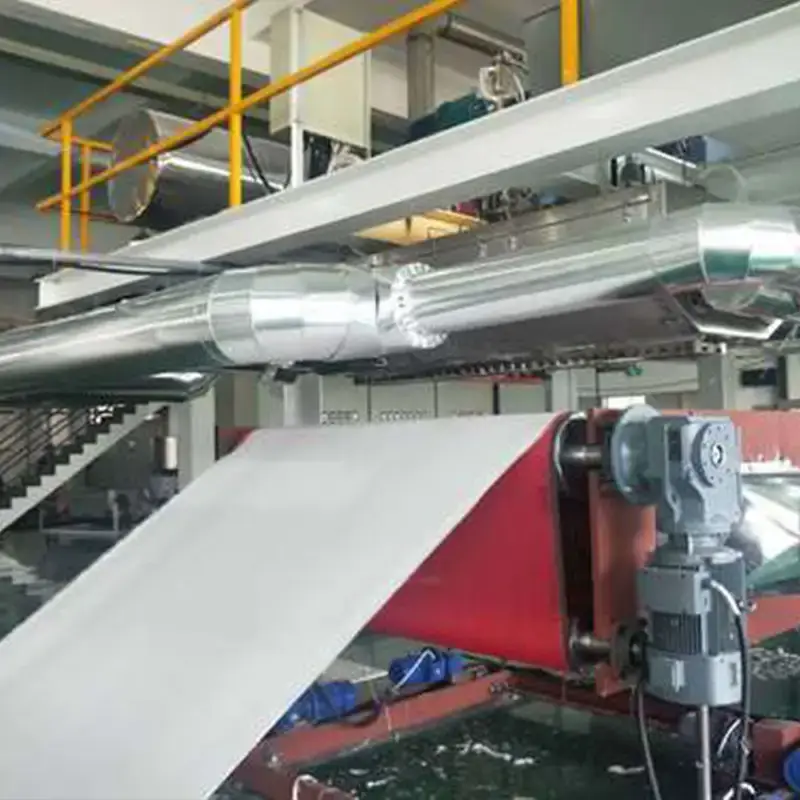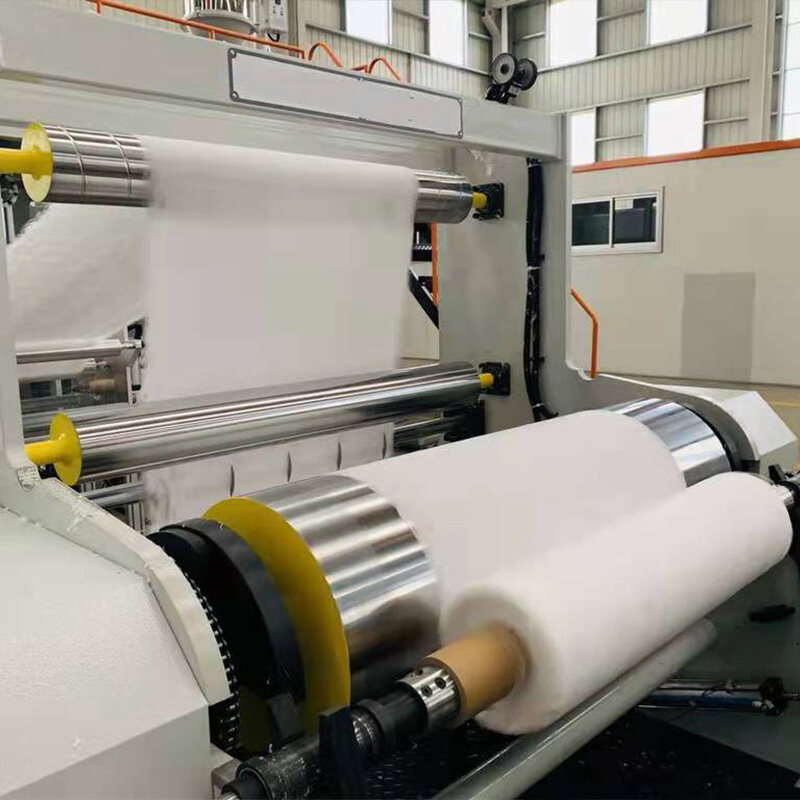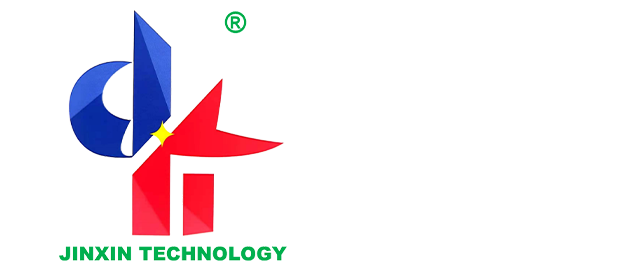6-20 个字符(仅限字母加数字)
密码不一致


PET Type Non-Woven Equipment: Features, Applications, and Benefits
The textile industry is constantly evolving, and with it, the technologies that support its growth. One such technology that has gained significant attention is PET type non-woven equipment. This advanced machinery plays a crucial role in the production of non-woven fabrics, which are widely used across various sectors. In this blog, we will explore the intricacies of PET type non-woven equipment, its features, applications, and the benefits it offers to industries.
Understanding PET Non-Woven Equipment
Before we delve into the specifics, let's establish a clear understanding of what PET non-woven equipment entails.
1. What is Non-Woven Fabric?
Non-woven fabric is a type of cloth that doesn't require weaving. It's made directly from short fibers or polymers, which are molded, pressed, or fused together.
2. PET in Non-Woven Fabrics
Polyethylene terephthalate (PET) is a common material used in the production of non-woven fabrics due to its strength, durability, and recyclability.

Features of PET Type Non-Woven Equipment
The features of PET type non-woven equipment are what set it apart in the industry.
1. High Production Efficiency
PET non-woven equipment is designed for high-speed production, ensuring efficiency and reducing downtime.
2. Versatility
These machines can handle a variety of materials and can be adjusted to produce different types of non-woven fabrics.
3. Automation
Advanced automation features in PET non-woven equipment reduce the need for manual labor, improving safety and consistency in production.
4. Energy Efficiency
Modern PET non-woven equipment is engineered to consume less energy, making it an environmentally friendly choice.
Applications of PET Type Non-Woven Equipment
The versatility of PET type non-woven equipment allows it to be used in multiple applications.
1. Industrial Applications
In industries such as construction, PET non-woven fabrics are used for insulation, geotextiles, and protective layers.
2. Agricultural Applications
In agriculture, PET non-woven fabrics are used for crop protection, mulching, and soil erosion control.
3. Medical Applications
In the medical field, PET non-woven fabrics are used in surgical gowns, masks, and hygiene products.
4. Consumer Goods
PET non-woven fabrics are also used in the production of consumer goods like diapers, wipes, and packaging materials.
Benefits of PET Type Non-Woven Equipment
The benefits of using PET type non-woven equipment are numerous and far-reaching.
1. Cost-Effective
Producing non-woven fabrics with PET equipment is often more cost-effective than traditional weaving methods.
2. Customizability
PET non-woven equipment allows for the customization of fabric properties, such as weight, thickness, and strength.
3. Environmentally Friendly
Since PET is recyclable, using PET non-woven equipment contributes to a more sustainable production process.
4. Durable Products
The end products made from PET non-woven fabrics are known for their durability and long-lasting performance.
Choosing the Right PET Type Non-Woven Equipment
Selecting the appropriate PET type non-woven equipment is crucial for your production needs.
1. Capacity
Consider the production capacity you require and choose equipment that can meet those demands.
2. Quality
Look for equipment from reputable manufacturers that prioritize quality and reliability.
3. After-sales Service
Choose a supplier that offers strong after-sales support, including maintenance and troubleshooting.
4. Scalability
As your business grows, your PET non-woven equipment should be able to scale with you. Consider future-proof options.
Maintenance and Operation of PET Type Non-Woven Equipment
Proper maintenance and operation are essential for the longevity and efficiency of your PET non-woven equipment.
1. Regular Maintenance
Schedule regular maintenance checks to prevent breakdowns and ensure optimal performance.
2. Operator Training
Train operators to handle the equipment correctly to prevent accidents and maintain product quality.
3. Spare Parts
Keep essential spare parts on hand to minimize downtime in case of equipment failure.
4. Software Updates
Keep the equipment's software updated to take advantage of the latest features and improvements.
The Impact of PET Type Non-Woven Equipment on Industry
The use of PET type non-woven equipment has had a significant impact on various industries.
1. Innovation in Textile Production
It has led to innovations in textile production, offering new possibilities for fabric design and functionality.
2. Economic Growth
The non-woven fabric industry's growth has contributed to economic development, creating jobs and fostering innovation.
3. Environmental Sustainability
By using recyclable PET materials, the industry moves towards more sustainable practices.
Conclusion
PET type non-woven equipment is a game-changer in the textile and related industries. Its ability to produce high-quality, customizable, and environmentally friendly non-woven fabrics makes it an attractive choice for businesses. By understanding the features, applications, and benefits of PET type non-woven equipment, companies can make informed decisions to enhance their production capabilities and contribute to a more sustainable future.

